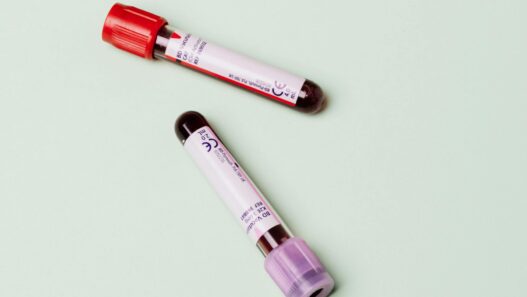There are up to 28 different types of collagen that have been identified which in total account for 30% of the protein in your body. Collagen differs based on how molecules are assembled, the cells that are added and where and how the collagen is used.
Now, whilst there are up to 28 types of collagen, you only need to focus on 5 main types, as they make up most of your body’s collagen supply. These are:
- Type 1 (I)
- Type 2 (II)
- Type 3 (III)
- Type 4 (IV)
- Type 5 (V)
We will break these types down further, but it is important to further understand that from these 5 main types, 2 are even more common. These are Types 1 and Type 3 which account for upto 95% of the collagen in your body.
What are the different types of collagen
TYPE 1 COLLAGEN
Type 1 collagen is known to account for up to 90% of the present collagen in your body. It is a densely packed collagen which aims to provide structure to your skin, bones, tendons, connective tissues and ligaments. Type 1 collagen is also present in your cornea and blood vessel walls.
As you can see it fulfills multiple functions and is present in multiple parts of your body. This is why supplementing Type 1 collagen helps with bone density and strength, reducing joint pain, and maintaining your skin health and tightness.
TYPE 2 COLLAGEN
Type 2 collagen is specifically targeted at improving joint health and reducing joint pain.
This is because Type 2 collagen makes up the main parts of the cartilage found in the joints of your bones e.g. elbows, knees and ankles. Cartilage is connective tissue, a bit like a sponge which stops your bones from rubbing together and causing you pain.
As you age, wear and tear on joints can eventually lead to the loss of cartilage, and that is why supplementing type 2 collagen is vital for maintaining healthy, flexible, pain-free joints whilst reducing the risk of conditions like osteoarthritis.
Type II collagen supplements, which are mainly extracted from chicken bones, also help to reduce joint pain, inflammation, and swelling for those with joint disorders.
TYPE 3 COLLAGEN
Type 3 collagen is the second most common collagen in your body, and can account for between 5 to 15% of your body’s total collagen amount.
It is only second in total amount to Type 1 collagen, with Type 3 playing a major role in the structure of your skin, blood vessels, uterus, lungs and bowel. Again, supplementing Type 3 collagen will help maintain the overall health and strength of these organs.
Type 3 also supports wound health and healthy blood clot activities, so there is an added benefit of helping your body react to damage better and overall recover better.
TYPE 4 COLLAGEN
Whilst type 4 collagen isn’t commonly known or taken as a supplement because of how low a percentage it is in the body, it does still play a role in stopping toxins and other substances getting into your organs through your skin.
Type 4 collagen does this by acting as a preventative layer or filter in between your skin and internal organs.
As Type 4 is so closely linked with your skin, taking supplements, which to add are commonly extracted from egg whites, can help boost your overall skin health and skin recovery. Type 4 collagen can result in reducing wrinkles and other signs of ageing skin. Bear in mind here that if you are targeting skin health, then it is better to supplement Type 1 collagen as it is more abundant in your body and covers more areas.
Finally, type 4 collagen also plays a major role for your kidneys, helping to filter waste and ultimately can help to reduce the risk of kidney damage.
TYPE 5 COLLAGEN
Type 5 collagen, similar to type 4 it is not as common in the body, keeping in mind Types 1 and 3 can account for up to 95% of the collagen in your body.
However type 5 collagen does have a focused role in aiding hair health. It does this by contributing to the strength and thickness of hair strands, which promotes healthy hair growth.
Additionally type 5, on a smaller scale does exist in the cornea, tissue of placenta and skin.


















